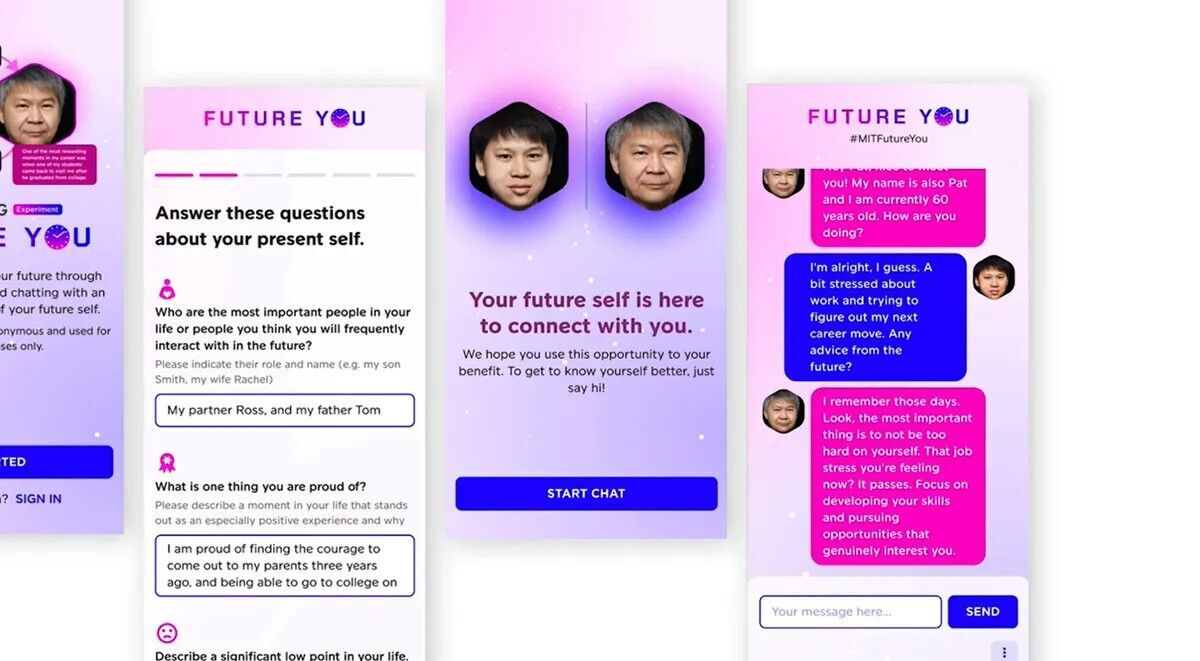'Future You' AI lets you speak to a 60-year-old version of yourself — and it has surprising wellbeing benefits

'Future You' AI enables users to converse with a 60-year-old version of themselves, providing unexpected benefits for wellbeing. Initiated by researchers from MIT Media Lab and international collaborators, the project encourages young individuals to interact with an AI-driven simulation of their future selves through a chatbot. Published in a paper on October 1 in arXiv, the project demonstrates that users experience reduced anxiety and heightened optimism after engaging with the Future You AI. Utilizing artificial intelligence, the system simulates a user's identity between the ages of 60 and 70, using a photographic avatar generated with a model called StyleClip. Users upload selfies, prompting age-progression models to render an image reflecting their senior appearance.
Through the AI interface, users discuss how to attain their life goals considering their current circumstances and beliefs. This exercise fosters a stronger connection with their future selves, which co-author Hal Hershfield of UCLA argues can improve outlooks toward the future. By acting as an anchor point, the vivid and interactive components of the chatbot aid users, moving them away from anxiety toward constructive outcomes.

Key to the project is the chatbot’s ability, powered by OpenAI's ChatGPT with GPT-3.5, to blend predictions about one's future, drawing on a mix of user-provided responses regarding their lives, demographics, and aspirations. The chatbot mixes this data with insights from others’ life stories to develop a persona that provides relatable and relevant advice on potential life pathways.
Warnings remind users that the system is just one potential future vision among many, encouraging users to explore various outcomes by altering their input. The project demonstrates that conversations with personal avatars promote long-term decision-making by reinforcing a sense of future continuity. In testing with 344 English-speaking participants aged 18 to 30, the AI simulation led generally to decreased anxiety and increased motivation.
Jeremy Bailenson of Stanford University emphasizes the groundbreaking nature of this work, as it marries traditional psychological techniques with advanced AI to personify users' future selves. This synthesis of virtual self-modeling and extensive language models represents a significant academic interest as it opens a dialogue about one’s desired future.
Earlier, SSP wrote about Google's experiment with Gemini AI button on the Android lock screen.



















